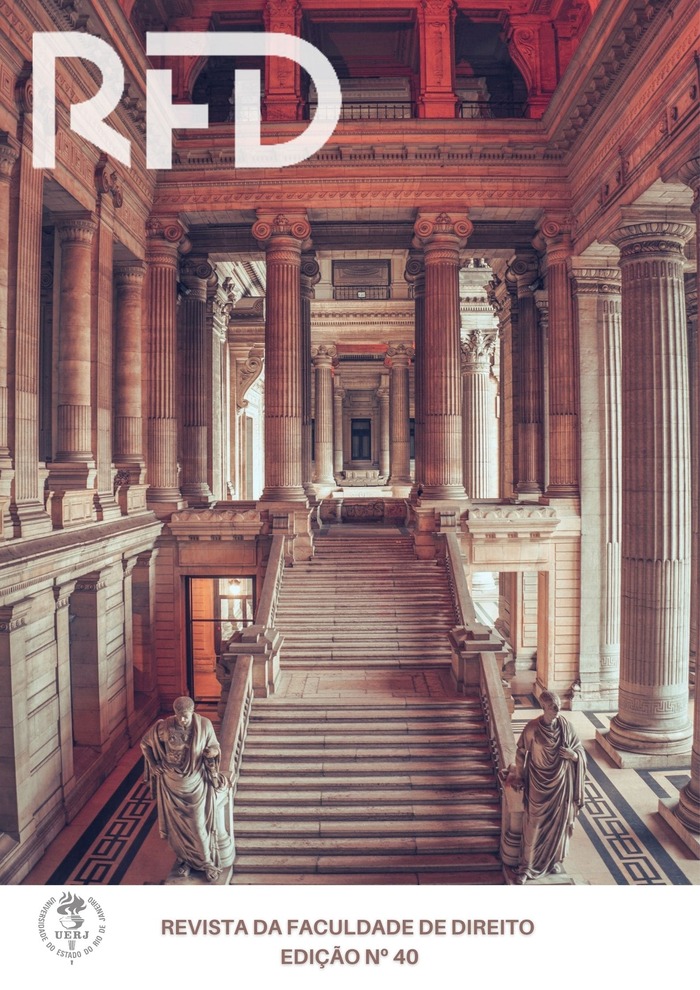A RELEVÂNCIA DOS DIREITOS DOS IDOSOS NO SÉCULO XXI: SOB O PANORAMA DO EXPRESSIVO CRESCIMENTO POPULACIONAL
DOI:
https://doi.org/10.12957/rfd.2021.54423Palavras-chave:
Envelhecimento. Dignidade humana. Proteção. Garantias.Resumo
O presente artigo tem como objetivo ressaltar a importância dos direitos dos idosos no cenário atual e futuro, de forma a afirmar, que tais direitos são fundamentais para o desenvolvimento não só dos idosos, mas da sociedade, já que os idosos vêm se tornando maioria da população e todos impactos, sociais, econômicos, legais e afins, que deles advir, influenciarão a todos, de maneira significativa. O envelhecimento faz parte da vida humana, sendo até mesmo um direito personalíssimo, e os idosos, simplesmente por assim o ser, não podem sofrer limitações ou mitigações de seus direitos mais basilares. Fundamenta-se o estudo a partir do aumento da expectativa de vida, nunca antes vista na história, alcançada por meio da tecnologia, da medicina e de mudanças de hábitos sociais. Buscar-se-á como resultado, analisar que grande parte da responsabilidade, ocasionada pela mitigação de direitos dos idosos, está sob a sociedade, e sob o Estado, que tem o dever de proteger, instruir e zelar pelo idoso, de forma a concluir que a proteção de direitos da população idosa se tornou imprescindível e a obrigação de implementação e respeito dos mesmos, nunca foi tão necessária, devido ao envelhecimento populacional em larga escala. Nesta pesquisa, empregou-se o método hipotético-dedutivo, o modelo histórico, observacional e comparativo, baseado no recurso teórico para tecer as ideias centrais juntamente com os resultados de pesquisa.
Downloads
Publicado
Como Citar
Edição
Seção
Licença
Direitos Autorais
oArtigos publicados na Revista da Faculdade de Direito da UERJ (RFD/UERJ)
Os Direitos autorais dos artigos publicados pertencem à Revista da Faculdade de Direito da UERJ (RFD/UERJ). É permitida a reprodução total ou parcial dos artigos desde que citada a fonte.
oReprodução parcial de outras publicações
Artigos submetidos que contiverem partes de texto extraídas de outras publicações deverão obedecer aos limites especificados para garantir originalidade do trabalho submetido. Plágio em todas as suas formas constitui comportamento antiético e é inaceitável.
Recomenda-se evitar a reprodução de tabelas e ilustrações, extraídas de outras publicações. O artigo que contiver reprodução de uma ou mais tabelas e/ou ilustrações de outras publicações só será encaminhado para análise se vier acompanhado de permissão escrita do detentor do direito autoral do trabalho original para a reprodução especificada na Revista da Faculdade de Direito da UERJ (RFD/UERJ). A permissão deve ser endereçada ao autor do trabalho submetido. Em nenhuma circunstância a Revista da Faculdade de Direito da UERJ (RFD/UERJ) e os autores dos trabalhos publicados nesta revista repassarão direitos assim obtidos.
·Os trabalhos não aceitos para a publicação serão devolvidos aos autores, se solicitado.
A Revista da Faculdade de Direito está licenciada com uma Licença Creative Commons Atribuição 4.0 Internacional.
Este trabalho está licenciado sob uma Licença Creative Commons 4.0, Atribuição-Sem Derivações.
Esta licença permite copiar e redistribuir o material em qualquer suporte ou format para qualquer fim, mesmo que comercial, desde de que citada a autoria original.











